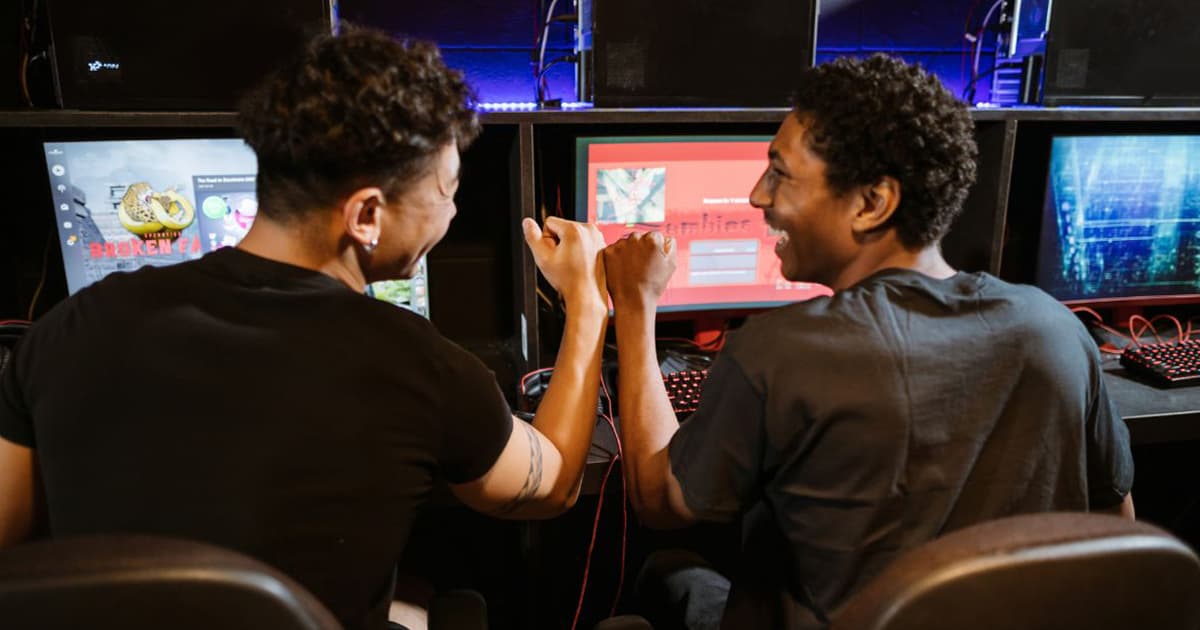As colleges and universities find new ways to utilize technology to communicate with students, and Esports and gaming emerges in the United States, it’s important that everyone involved feels seen, included, and protected– even the gamers. Virtual spaces and digital places can provide a fun and educational experience, but institutions need to ensure these spaces are safe for all.
Dr. Kishonna Gray, an Associate Professor in Writing, Rhetoric, and Digital Studies at the University of Kentucky, has spent more than a decade researching gaming within Black communities and the harassment that exists. Her findings are documented in her book, ‘Intersectional Tech: Black Users in Digital Gaming.’ Dr. Gray joined Mongoose on a For Your Institution episode to discuss representation in technology and offer her unique insight.
If Your Students Are Playing Esports, They Need Your Support
Virtual spaces can be just as dangerous as dark alleyways. As the widely publicized abuse that occurred in an event known as Gamergate has shown, women often face non-stop abuse and misogyny when they try to engage with others through gaming. Dr. Gray’s research illustrates the rampant racism and toxicity that abounds in virtual gaming circles.
Colleges and universities that provide Esports and gaming opportunities must ensure that they’re working to foster a culture of belonging and inclusion. Whether there is a physical space in your college’s Student Union or gaming only occurs virtually through groups on campus, those spaces should be protected and monitored. Faculty and staff need to stay involved with Esports activity.
“When I listen to students, I hear them say that they experience racism and sexism in chatrooms and through gaming discourse. Many of them won’t let that diminish their experience. I love stories about allies and how gamers of all colors and genders and sexuality come together to create beautiful spaces of inclusion and protection. And I wouldn’t have known that if I wasn’t listening and paying attention.” - Dr. Kishonna Gray
Gaming Provides a Space To Listen To Your Students
“You have to listen to people tell their stories to understand their perspectives.”
- Dr. Kishonna Gray
If there’s a problem on your campus, your students are going to talk about it with each other. Faculty and staff members interact with students every day, but they might not be approached by students directly when there’s a concern. Gaming and Esports are an outlet for students to gather, engage, and discuss current events. Listening to your students is vital when it comes to engagement.
“It can be easy to throw gaming into the mix of what you’re doing to engage with students. Games and technology shouldn’t be replacing any of that. These things are just enhancers to supplement what’s already there.” - Dr. Kishonna Gray
The more you know, the more you can help students navigate roadblocks in their educational journey. Conversations in that virtual space could provide opportunities for faculty and staff to learn more about their constituents. In the same way that social clubs, organizations, and sports teams create communities on campus, Esports do so virtually.
“We’ve defined gaming so narrowly. If you play Candy Crush, you’re a gamer. Parents often diminish gaming because they don’t understand it. A lot of people don’t know where to start that connection. When we work to understand gaming, we find commonalities. That’s another reason to pay attention to gaming.” - Dr. Kishonna Gray
Should Your Institution Consider Esports?
Video games can sometimes have a bad reputation, and gamers are often associated with laziness or a lack of responsibility, but Esports can provide benefits to any campus. An engaged student base that embraces competition will flourish with the right outlet, and the results can be impactful. When instituted with care and consideration for community, organized gaming can help students feel like they belong.
Esports programs can:
- Help students learn workforce skills and team-building abilities
- Increase the pool of prospective students by offering them additional areas of interest
- Increase revenue through potential sponsorships
“Gaming can get kids excited about their future. I wasn’t good at math, I wasn’t good at science, but I wanted to be in the tech world. You can give me any discipline and I can show you how gaming resonates with that space. Even English, because narratives in games often come from Old English literature books. There are all kinds of ways to use gaming to teach different kinds of academic disciplines. You don’t have to just do hardcore programming an coding.” - Dr. Kishonna Gray
Learn more about representation in technology and ways to create safe virtual space for your students in the full FYI episode below, and be sure to register for upcoming FYI events!





.webp?width=57&height=74&name=users-love-us-4fca521cb6d80c30d02e3df6bd0013f5395fb3ae22e81b3e3608e258d8feba63%20(1).webp)